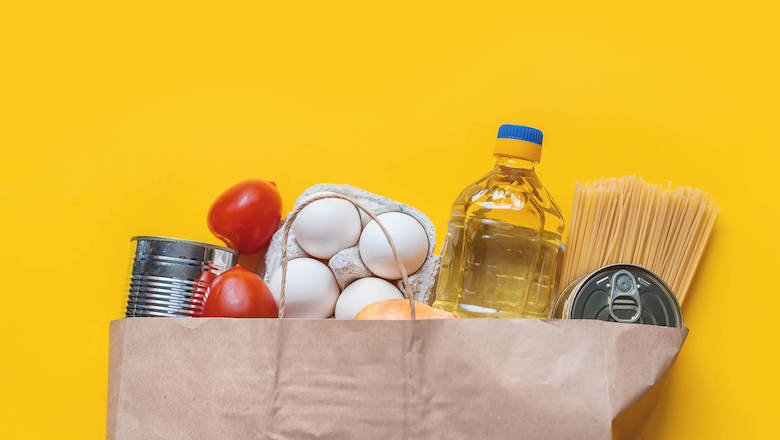Grocery Store Operators Pull Out the Stops to Keep Shelves Stocked
As Demand Surges, So Do Out-of-Stock Items
Everything from Nutella to Pringles is in short supply. As a result, supermarkets are pulling out all the stops to ensure they can meet robust demand. The task is becoming increasingly difficult, forcing supermarkets to play a guessing game with different products every week. In order to handle the Whack-A-Mole-style food-supply shortages, supermarket operators are expanding storage space to increase inventory. They’re also sending their own trucks to pick up supplies.
Various consumer goods companies are also stepping up production to meet strong demand. For example, Campbell Soup (CPB) and Kraft (KHC) are accelerating production of popular food items including Prego sauces, Lunchables, and Capri Sun.
Tops Sends in the Trucks
These high-profile food companies are suffering from the same problems plaguing other industries: worker shortages, rising raw materials costs, and delivery delays. That is prompting grocery store chains to find alternatives for out-of-stock items. These players are also stocking up on extra inventory whenever they can and placing orders earlier than in the past. Some supermarket companies have even sent their own trucks to warehouses to pick up goods and cut down on delivery times.
Tops Markets is a prime example. The grocery store operator is picking up food directly from manufacturers, filling up trucks with one product instead of a mix. The company is also placing orders three months in advance for certain items. For comparison purposes, ideally orders would be placed just one week ahead of time.
Just-in-Time Model on Hold
Food sellers’ new penchant for stockpiling is a departure from the industry’s “just-in-time” model in which inventory is kept at a minimum. Now industry executives plan to store more items during the next few months. Kroger (KR), for example, is expanding warehouse space to create a so-called safety stock of key staples including cleaning supplies and baking items. The company is also relying on data analytics to find substitutes for out-of-stock items and is expanding port options in terms of where it receives deliveries.
Grocery store operators’ moves to increase inventory could exacerbate shortages, but currently they have limited options. With supply-chain issues expected to last into next year, and with demand projected to remain strong, the last thing food sellers want is to have empty store shelves ahead of the holidays.
Please understand that this information provided is general in nature and shouldn’t be construed as a recommendation or solicitation of any products offered by SoFi’s affiliates and subsidiaries. In addition, this information is by no means meant to provide investment or financial advice, nor is it intended to serve as the basis for any investment decision or recommendation to buy or sell any asset. Keep in mind that investing involves risk, and past performance of an asset never guarantees future results or returns. It’s important for investors to consider their specific financial needs, goals, and risk profile before making an investment decision.
The information and analysis provided through hyperlinks to third party websites, while believed to be accurate, cannot be guaranteed by SoFi. These links are provided for informational purposes and should not be viewed as an endorsement. No brands or products mentioned are affiliated with SoFi, nor do they endorse or sponsor this content.
Communication of SoFi Wealth LLC an SEC Registered Investment Adviser
SoFi isn’t recommending and is not affiliated with the brands or companies displayed. Brands displayed neither endorse or sponsor this article. Third party trademarks and service marks referenced are property of their respective owners.
SOSS21110202



